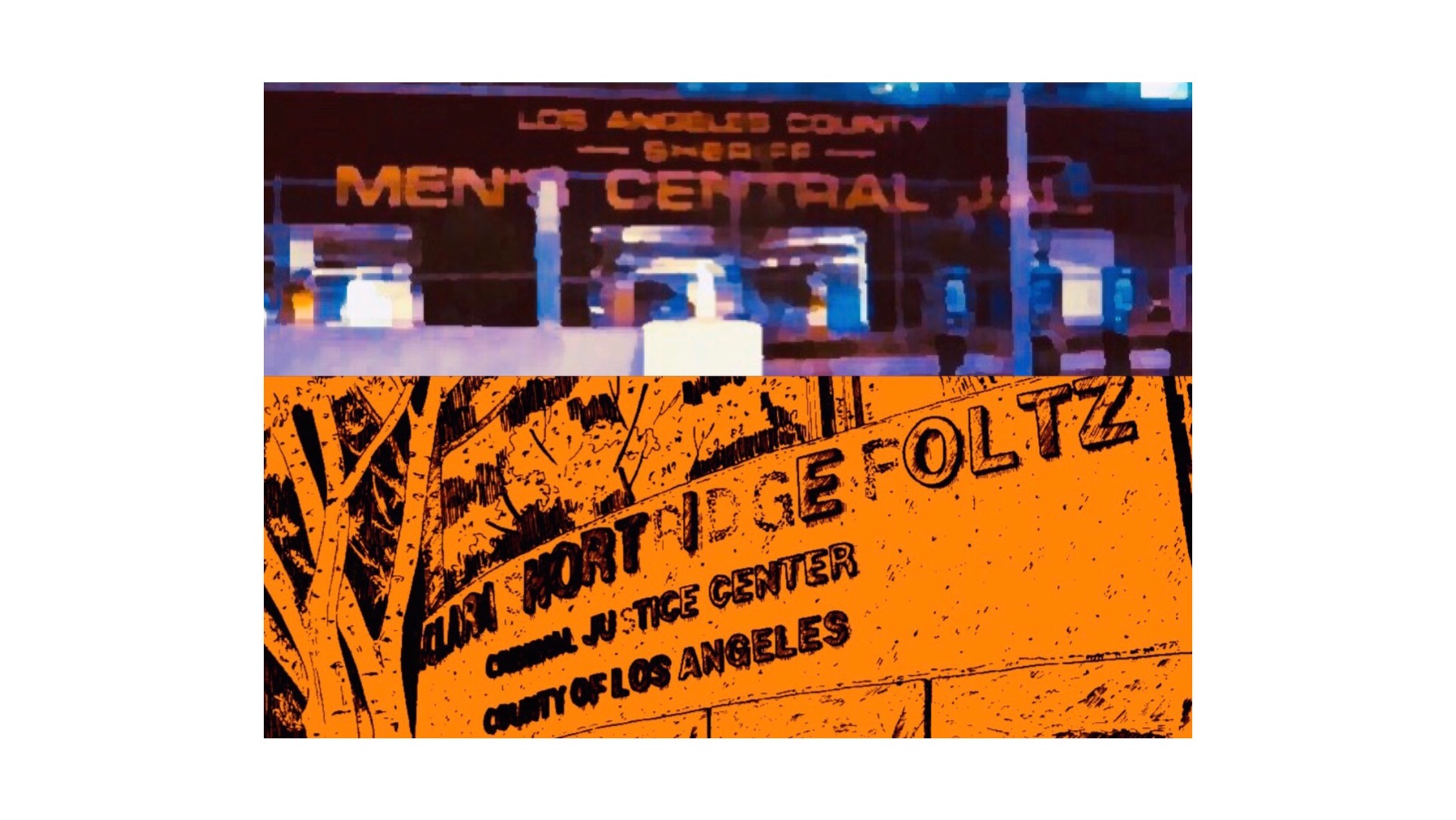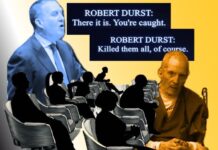In April, as part of our effort to understand how the public health emergency is affecting criminal defense attorneys and their clients, we spoke with a Los Angeles-based Bar Panel Attorney, who requested anonymity so that they could speak freely.
Last week we followed up with that attorney to catch up on his observations two months later. But before we share that perspective, we should clarify how the system of indigent criminal defense works in California and in Los Angeles specifically.
The primary practitioners of indigent criminal defense in California are public defenders. Most cities and large towns have public defender offices, and those attorneys are civil servants who are on the city or town payroll.
Los Angeles has the largest Public Defender’s office in the country as well as an Alternate Public Defender office. APDs, as they are known, are assigned to serve indigent clients when the Public Defender has a conflict of interest in a case. For example, if there is more than one defendant in a case, then the court will assign the Public Defender’s office one defendant and the other defendant will be assigned to the Alternate Public Defender’s office.
A Bar Panel Attorney is a private lawyer who is on a panel regulated by the California Bar Association from which indigent clients may be assigned counsel. Some California towns don’t have a public defender. Indigent defendants in those towns are assigned Bar Panel Attorneys. In Los Angeles, if both the Public Defender and the Alternate Defender have a conflict on a case (i.e. if there are more than two indigent defendants) then Bar Panel Attorneys are assigned to the remaining defendants. Those attorneys bill the court as contractors for their services according to a schedule of fees and responsibilities.
So with that said, here are excerpts from the Bar Panel Attorney’s statements during our conversation about how COVID-19 is affecting criminal defense attorneys and their clients in Los Angeles.
On how things have changed in the Criminal Courts since April.
One thing that’s been the same is that since mid April substantively, I have not done very much with any of my cases other than continue them or run bail motions.The courtrooms are still working at a snail’s pace. Now, the courthouses, themselves have relaxed on letting people into the building.
In the beginning, they wanted a bar card and they wanted to look and see if the defendant was “on calendar” for that day, or they would not let you in the courthouse. Now they’ll wave us through, and they don’t ask to see if your client’s “on calendar” that day anymore. There just are a lot more people inside the courthouses. They still have cut things down to a limited amount of courtrooms, but it’s been my experience that those courtrooms are a lot more full than they were back in April. Full to the point that, you can’t effectively social distance within the courtroom anymore. And although we’re trying to, it’s made it very difficult to do little things like navigate to get to the clerk through a line of people to check in. These courthouses were like ghost towns two months ago. And they’re not like that anymore.
On whether there is any information available to lawyers on testing inmates of the county jail for COVID.
The sheriff has a website with the current number inmates who are either quarantined or have tested positive, but that’s it. So there isn’t a lot of information out there.
On the suspension of statutory rights to habeas corpus and other time limits on how long proceedings may be stayed without a defendant’s approval.
There are different stages of a criminal prosecution and once somebody has had their preliminary hearing and is held to answer there’s a 60 day time limit on when the trial should start. So anybody who had their preliminary hearing before COVID arrived and was inching towards trial, has still not received their trial. And the courts keep extending these timelines, so there’s no telling when any attorney can actually force the prosecution to give a defendant their right to a trial. While the defendant may be kicking and screaming and saying, “This is America and I’ve got a right to jury trial,” as attorneys, we also know that it’s simply impractical to think that we’re going to get a trial anytime soon. So it’s put everybody in a pretty difficult spot.
If you haven’t had your preliminary hearing, then you haven’t yet been denied your timely right to a trial, but I have a client who’s been in quarantine for at least six weeks, and I’d like to have him get his preliminary hearing so we can start the clock ticking on his trial date, but I can’t get him in court for this preliminary hearing because he’s constantly in quarantine.
On the practical effects of this on clients who have legitimate claims to innocence on charges that are barely on the other side of the “violence” dividing line.
My clients who were in custody on nonviolent charges, stealing a car for example or even clients who are charged with borderline violent crimes like Estes robberies, those clients have been lucky because they were let out of custody with no bail. In those cases, the judges continued their court dates for a long time. It doesn’t really make sense to put these kinds of defendants back in jail where they would do very little time anyway, because again, they’re accused of something non violent and we’re trying to bring down the populations in the jail. So I don’t know what’s going to happen with these particular clients, but I do think it will be hard to put them in custody for any lengthy amount of time.
On the other hand, if they are in jail for something truly violent, if they’re awaiting charges, say on a murder case, well, nobody thinks they’re going to let out somebody that may be a danger to the community and that person’s going to wait there for a year or more. In a murder case, that’s not that unusual.
But the clients who are in the toughest position are the ones who are accused of doing something that is just on the other side of the line where a judge draws the line on what is “violent.” Maybe it was self defense in a fight, or maybe the prosecutors are overcharging a person.
For example, I have a client on probation for a gang graffiti incident, which is non-violent in nature. But by definition, tagging a building with the name of a gang is a “gang crime,” and therefore a felony, whether you’re in a gang or not. This client has a good job. He lives in an apartment building with his family. According to him, his sisters had ordered a pizza and they went out into the front of the elevator to wait for it. And when they did that, the apartment manager came out and told them that they were loitering there and they had to leave. She was very aggressive and a fight broke out between my client’s sister and the apartment manager. According to my client, he stepped in to help break it up.
The police were called and my client and his two sisters who were there and another guy were all arrested. Everybody was able to bail out except for my client, because being charged in the new case violated his probation. So if he had been able to bail out, or if they had just let him go on his own recognizance, we would kick the can on this case forever because he’d be out of custody. He would only be alleged to have committed a crime. He wouldn’t have a probation violation hearing. We would wait until he could have his trial. And it wouldn’t matter to any of us how soon that happened. But because of the probation violation stemming from the graffiti case he has a no bail hold, meaning he can’t bail out. Under the emergency rules for Covid-19, judges do have the discretion to lift these no bail holds, but the judge in this case denied my motion on the grounds that my client is a violent gang member, which is simply not the case.
He wants his trial. I’ve not discussed settling this case with him. I don’t have an offer on this case. He has maintained that he’s innocent and that he wants to fight it. But the truth is that after being in jail for three, four months, he may not feel that way anymore. He may be willing to settle this case, especially if he could get out and keep his job.
The repercussions of that would be that he would most likely have to plead guilty to another felony. It wouldn’t be a “strike.” But it is a felony and he could get fired from his job. And now, in his mid twenties, he’d have two felonies on his record.
I have not spoken to him since the last time I saw him in court, which was probably two months ago. But I do talk to his mom. She calls me a few times a week and she is worried about him. She just wants to get him out.
So, my only shot is to get it back with the judge who is actually going to have to deal with this case. And if I can get that judge to see my client as a guy who made a couple mistakes, and was in the wrong place at the wrong time, and is being harmed by being incarcerated indefinitely, then maybe he would let him out. But that’s just a maybe.
On trying to plea bargain right now.
I’m a Bar Panel Attorney and so I only represent a few clients, but the public defender’s office and the alternate public defender’s office, they could take an office wide approach where they tell the DA that they don’t want to settle their cases. They just want to go to trial, and they use that leverage to really overload the system. We’re not there yet because the courts really haven’t opened up yet — but I am waiting to see what happens over the next couple of weeks. I certainly don’t want to jump on any deal. I don’t want to plead my guys out, when they’re not going to get a great deal, especially if the public defenders have used their leverage so that all the “deals of the century” will be happening in July.
On the court shutdown’s impact on Bar Panel Attorneys:
A lot of Bar Panel Attorneys are over 70 years old. Some of them are over 80 years old. There are a lot of Bar Panel Attorneys with health conditions. So they’re just not going to court at all. I also know that there are far less cases out there for Bar Panel Attorneys. A lot of attorneys make their money by taking cases to trial, which nobody can do.
On the other hand, a lot of Bar Panel Attorneys are being paid to just go sit around in courthouses, waiting for a fax to come in, or telling the court that the client is in quarantine. You’re on the clock a fair amount of the time even though you have very few cases that are active during this period.
In terms of billable hours, I’m doing about maybe 30% of what I usually do.
Also we usually bill at the end of a case. And then we don’t get paid for at least 60 days. So in terms of money coming in, there really isn’t any. And, and that’s not going to let up anytime soon.
My personal theory is that the courts will open up for a couple of weeks and then close down again. I don’t have any confidence that courthouses can function under these conditions.
There are a number of Bar Panel Attorneys who don’t have a lot of private clients that are being pushed to the financial brink by this crisis.
Reflecting on recent events, I asked for any examples of clear systemic racism by police.
I have an African American client who picked up a strike more than 20 years ago. He is now in his 40s. When a strike is over 10 years old, judges and prosecutors are open to “striking the strike,” which means the old strike won’t be used to double the time on the case the defendant is currently facing. They’re especially open to striking a strike if the defendant hasn’t picked up any new cases in the interim, which is the situation with my client.
The circumstances of his arrest were that he was living in a house owned by his mother and he was paying rent to her.
The police were made aware that there were alleged gang members hanging around the house. They had actually written letters to his mother asking for her permission to go into the house and get rid of the alleged gang members. She did not agree that there were gang members in the house, so she wouldn’t give them permission.
The police searched the house without a warrant anyway. They asked my client if they could go in the house. He said, no, he wouldn’t consent to a search.
They went into the house anyway. They found a gun and my client admitted it was his. And since he’s a convicted felon, he’s not allowed to have a gun. So the charge is “felon with a gun,” which is not a triable issue. The only issue is whether the search was legal.
In the police report after my client’s arrest, the police say that there were three rationales for searching my client’s mother’s house without a warrant.
1) They say that there was a gang shooting nearby — it was actually on the other side of the town they were in — involving the gang whose alleged members were staying in my client’s mother’s house, and in investigating this crime, they went to my client’s mother’s house as part of a “hot” crime investigation. They did not allege that anyone in the house was involved in the shooting.
2) The police report said that the cops had driven by the house and declared that it was abandoned. Since it was abandoned, they could just go in and search it.
3) They arrested somebody in the front yard and that allowed them to go into the house to do a protective sweep of the house, looking for other gang members. The person arrested in the front yard was not under any kind of suspicion and was released later, so this protective sweep was completely bogus.
None of these are legit. I’ve actually never had a case with this clear cut of a violation of the fourth amendment. He was out of custody. He wanted to fight it. I wanted him to fight it. I wrote a “motion to suppress evidence” on this case. We were going to argue the motion, but then COVID-19 happened. It kept getting delayed. And so when I went to court, the DA offered him no jail time, but a three year suspended sentence. If you take one of these suspended sentences, it means that if you have any kind of violation whatsoever, a judge can impose the full three years and you can’t fight it. You can throw yourself on the mercy of the court, but you have no right to a trial and no right to fight an illegal search. I encouraged my client not to take the deal.
Now, I can’t guarantee him we’re going to win this motion, but I can tell him that he has a really good shot at winning this motion. And if he does win, the case gets completely dismissed as if it never happened. But if he loses, then he’s looking at probably a couple of years in state prison.
Originally he said he didn’t want to take the deal, he wanted to fight it, but he thought better of it, and changed his mind. He’s a single parent of a young son and he didn’t want to risk spending any amount of time in state prison.
It’s up to him. So we went into court and took the deal, and I didn’t feel good about it because I just thought it was a great example of police overreach. I wanted to put these cops on the stand and have them explain their reasoning for the search. Maybe it would have given them pause the next time they decide to stomp all over someone’s constitutional rights. Maybe the judge would have let them have it and lectured the DA on fighting these kinds of cases. Instead, the cops got what they wanted.
My client avoids jail time, but there is a significant problem for him in accepting the plea deal. He’s now on felony probation and he’s open to search and seizure conditions wherever he is. And I do believe that the police will harass him by showing up to his house, and searching him and the house anytime they want. And if he’s got a gun or anything else that he is not allowed to have as a convicted felon, he’s going to go to prison.






